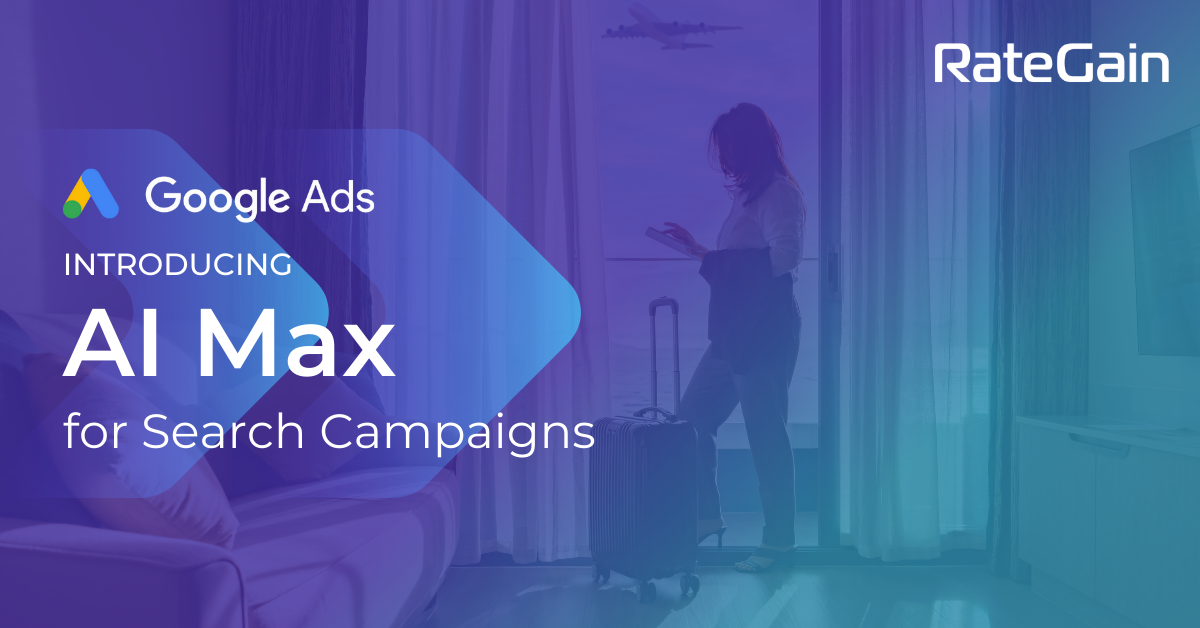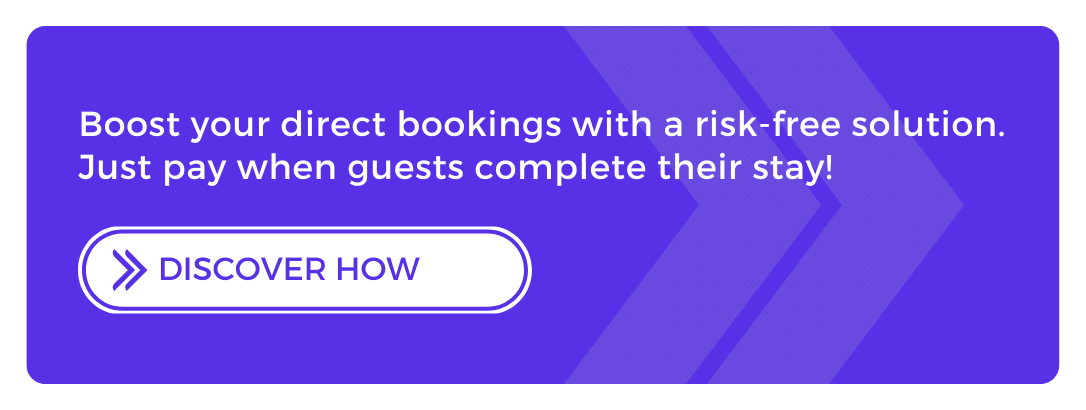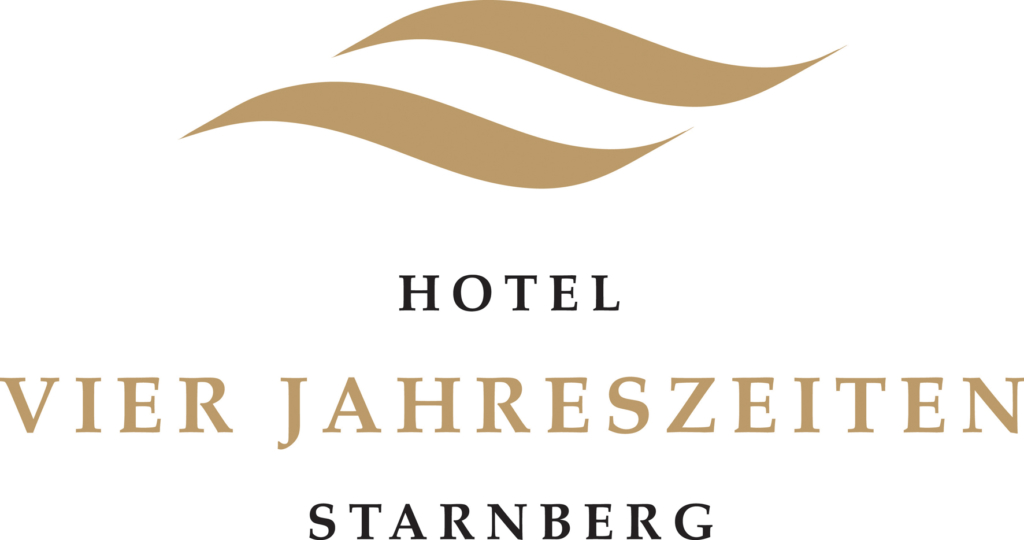Google Ads has announced a major update to Search campaigns with the global beta rollout of AI Max, a powerful suite of targeting and creative enhancements that brings the best of Google AI directly into Search.
Early tests show advertisers experience an average 14% more conversions or conversion value at a similar CPA or ROAS—with campaigns still using mostly exact or phrase match keywords seeing even greater uplifts of up to 27%.
As Google introduces AI Max for Search campaigns, advertisers across industries are getting a powerful upgrade to how they reach, engage, and convert customers through Search. But what does this mean for hoteliers navigating a competitive digital landscape?
Let’s take a deeper look at what AI Max brings and why it matters to paid search marketers.
What is Google AI Max for Search and What’s Changing?
-
Expand Your Reach and Discover New Customers
With Search Term Matching, Google AI now extends keyword matching beyond your current keyword set. Using both broad match and keywordless technology, AI Max learns from your existing campaigns—keywords, assets, and landing pages—to identify and act on new, high-performing search queries.
This means hotels can now show up for searches they previously missed, such as “seaside escapes for long weekends” even if they only targeted “beach hotels.”
Before AI Max:
Your hotel’s search campaign is focused on keywords like “budget hotel in Bangkok” or “Paris hotel deals.” But you’re missing nuanced, high-converting queries like:- “Where to stay near Bangkok nightlife for solo travelers”
- “Hotels close to Eiffel Tower with balcony views”
With AI Max:
AI Max uses broad match and keywordless targeting to identify relevant new search terms based on your website, existing keywords, and ad content. It surfaces your property for new guest needs — such as proximity to attractions, view preferences, or travel type (solo, couples, family).Result:
You tap into unexplored demand and appear in searches you didn’t directly bid on, growing your audience and driving more direct bookings. -
Deliver Personalized and the Most Relevant Hotel Ad Across Surfaces
AI Max dynamically generates new text assets—like headlines and descriptions—based on your landing pages, existing ad copy, and keywords. This updated feature, formerly known as Automatically Created Assets (ACA), now includes improved generation of compelling calls-to-action and unique selling points.
Pair that with Final URL Expansion, and your guests are sent directly to the most relevant page based on their search intent. A user looking for “family resorts with kids’ clubs” might be taken directly to your kid-friendly amenities page—even if your ad originally linked elsewhere.
Before AI Max:
Let’s say someone searches for “romantic mountain resorts with private hot tubs.” You’re bidding on “mountain resort”, but your static ad headline says:
“Luxury Resort in Colorado | Book Now”
— too generic, and likely to be skipped.With AI Max:
Google AI dynamically generates customized text assets using your website and ads. Now, the ad headline becomes:
“Secluded Mountain Escape with Private Hot Tubs – Perfect for Couples”
It adapts in real time based on searcher intent — even as that intent evolves.Result:
Your ads feel more personal, engage better, and convert higher by addressing specific traveler needs with AI-personalized messaging. -
Gain Hotel Campaign Control with Google AI Max Reporting
AI Max doesn’t compromise on control. You can:
- Opt out of any enhancement (search term matching, text customization, URL expansion).
- Use brand controls to align with or avoid specific brand associations.
- Use location of interest targeting to reach travelers based on geo-intent (perfect for multi-property hotel groups).
Before AI Max:
You want to promote your hotel in Miami to travelers in Canada looking for winter escapes, but your targeting is based on user location — not intent. And your reporting lacks visibility into what exact queries are performing best.With AI Max:
- Location of Interest targeting lets you serve ads to people in Toronto searching for “warm getaways in January”, even if they’re not physically in Miami.
- Enhanced reporting reveals what specific search terms and assets (headlines, landing pages) are driving bookings, not just clicks.
- URL controls ensure users land on the most relevant pages — like your Winter Escape offer or Canada Resident Discount page.
Result:
You gain more control, better insight, and improved performance across borders, seasons, and audiences — without losing precision.Google is also rolling out improved reporting tools:
- Search terms by asset (headline and final URL) for deeper visibility.
- Asset performance reports based on spend and conversions.
- A new URL parameter to help optimize landing page content.
What Does It Mean for Hoteliers?
Travel searches are becoming more complex and conversational. Guests don’t just search “hotel in Bangkok” anymore—they ask “best boutique hotel in Bangkok with rooftop pool.” AI Max helps ensure your property doesn’t miss out on those longer-tail, high-intent queries.
Hoteliers can also:
- Reach new traveler segments they weren’t targeting before.
- Adapt messaging in real time to reflect guest intent.
- Maximize ROI from underutilized keyword strategies.
This is especially valuable for seasonal promotions, launching new amenities, or expanding to new markets.
Example: You manage a boutique beachfront hotel in Goa and currently target keywords like “Goa beach resort” and “luxury hotel in Goa.” Without AI Max, your ads may miss high-intent, nuanced queries like:
- “Best oceanfront stay in Goa for a honeymoon”
- “Goa resorts with yoga and spa packages”
- “Pet-friendly hotels near Palolem Beach Goa”
With AI Max enabled:
- Search Term Matching picks up these keywordless queries by analyzing your website, ad history, and landing pages.
- Asset Optimization dynamically creates ad text that reflects terms like “honeymoon getaway”, “wellness retreat”, or “pet-friendly” — aligning perfectly with the traveler’s needs.
- Final URL Expansion directs users to the most relevant page — maybe your honeymoon suite, spa package page, or pet policy section.
The result? You show up in new searches, with tailored ad content, driving more qualified traffic and direct bookings you would’ve otherwise missed.
How Can Hoteliers Act Now?
-
Enable AI Max for Your Search Campaigns
If you’re already running Google Search ads, upgrading to AI Max is a one-click enhancement. Consult your PPC team or Google Ads manager to activate it.
-
Shift from Exact Match to Intent-Driven Targeting
Relying only on exact or phrase match keywords? It’s time to adopt a broader, more AI-assisted approach to reach high-intent travelers you may be missing.
-
Leverage Creative Automation
Allow Google AI to create ad headlines and descriptions that adapt to guest interests in real time. Combine this with tailored landing pages for a seamless booking experience.
-
Use Location & Brand Controls Thoughtfully
Target upcoming travel hotspots, regional events, or areas showing high search activity for your destination. And ensure your brand is represented correctly across the Search journey.
A Word of Caution
AI Max may not be suitable for:
- Hotels with strict brand compliance or content policies.
- Properties with rapidly changing websites or offers.
- Verticals like medical tourism where message accuracy is critical.
In these cases, limit automation to selected campaigns or test in low-risk segments.
Final Thoughts
AI Max gives hoteliers a way to tap into Google’s evolving AI-driven search experiences without giving up control. It’s not a replacement for keywords—but a powerful supplement that can drive growth and efficiency.
As automation becomes more sophisticated and search behavior more nuanced, hoteliers who adapt early—and strategically—will be best positioned to capture tomorrow’s traveler demand.
 Deutsch
Deutsch Português
Português Italiano
Italiano Espanol
Espanol čeština
čeština ไทย
ไทย Français
Français



